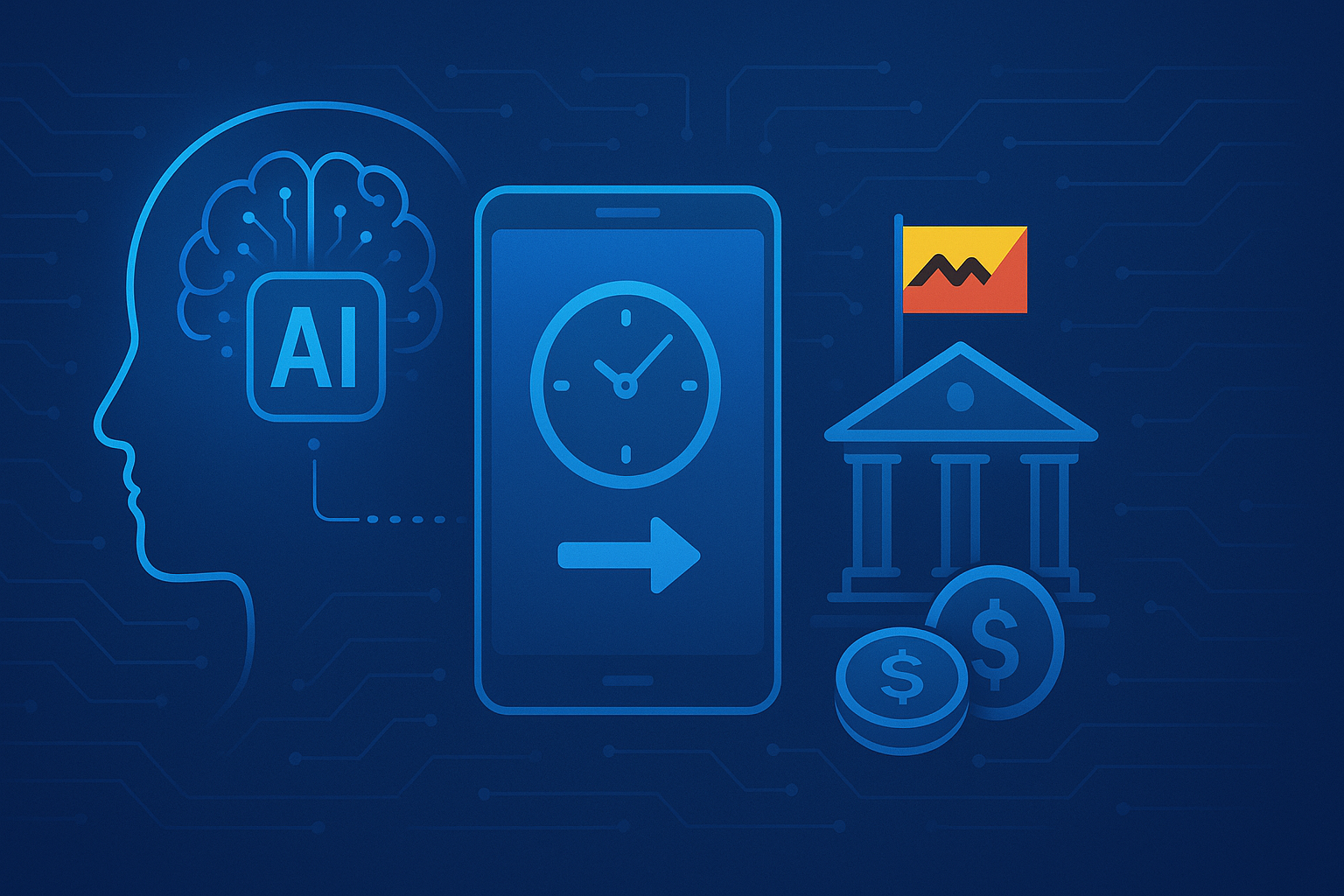AI Transforms Finance Through Instant Analytics and Decision-Making
Artificial Intelligence (AI) has reshaped the financial sector by enabling rapid, precise decision-making that previously required significant human intervention. Through sophisticated algorithms, AI can analyze vast amounts of financial data in seconds, transforming raw information into actionable insights. This speed has opened doors to new strategic possibilities, particularly in areas like risk assessment, portfolio management, fraud detection, and customer interactions.

Real-time finance relies on AI’s capability to detect patterns and trends instantly, facilitating informed decisions based on live data. Institutions now use AI-driven platforms to automate trades, assess creditworthiness immediately, and offer personalized financial products without delays. This has resulted in dramatically improved efficiency, accuracy, and responsiveness, positioning AI-driven institutions ahead of traditional competitors.
However, the same rapid capabilities also necessitate careful oversight. Decision-making speed alone does not guarantee quality outcomes. Financial institutions adopting AI must thoughtfully manage the intersection of speed and accuracy to fully leverage the technology’s potential while safeguarding against unintended consequences.
Attijariwafa Bank: Embracing AI to Lead Financial Innovation in Africa

Attijariwafa Bank, Morocco’s largest financial institution, stands as a key example of how digital transformation and artificial intelligence are reshaping the financial sector in Africa. Widely recognized for its innovation leadership, the bank has taken strategic steps to incorporate AI technologies across several areas of its operations.
One of the most visible applications of AI at Attijariwafa Bank is in customer service. The bank uses AI-powered chatbots to respond to customer inquiries and process simple transactions, significantly enhancing service speed and availability. These tools contribute to improved customer engagement and operational efficiency.
In parallel, the bank is actively leveraging analytics and big data to enhance internal decision-making. While detailed use cases such as real-time credit scoring or predictive investment adjustments are not publicly confirmed, Attijariwafa Bank has invested in AI and data infrastructure that support smarter risk management and digital services, especially within its DevOps and cybersecurity environments.
Moreover, Attijariwafa Bank’s commitment to innovation extends to promoting AI and big data for Moroccan SMEs, helping democratize access to intelligent financial tools across its ecosystem.
By integrating AI into its customer experience strategy and internal processes, Attijariwafa Bank demonstrates how financial institutions can build a foundation for long-term resilience, inclusion, and competitiveness in a rapidly evolving digital economy.
Real-Time Finance Drives Market Responsiveness and Customer Satisfaction

The strategic value of real-time finance is evident in the increased agility it brings to market responsiveness and customer satisfaction. Organizations leveraging AI-driven decision-making can immediately adapt to market fluctuations, capitalizing on emerging opportunities or mitigating potential threats as they unfold. This capability significantly enhances competitive positioning, enabling businesses to move proactively rather than reactively.
Real-time finance empowers companies to tailor their products and services to the immediate needs of customers, enhancing personalization. Instant data-driven decisions allow banks to offer timely, customized recommendations, increasing customer loyalty and satisfaction. For example, real-time credit approvals and investment recommendations make financial services more relevant and valuable to customers at precisely the moment they seek assistance.
AI-powered decision-making also significantly improves operational efficiency, freeing resources previously devoted to manual data analysis. This shift enables employees to focus on higher-value tasks, such as customer relationships and strategic initiatives, further enriching client experiences.
Moreover, rapid decision-making capabilities foster innovation, as businesses can experiment quickly and iterate their offerings based on instant feedback. Companies embracing AI’s potential for real-time action position themselves to respond swiftly to consumer preferences and market trends, thus creating substantial competitive advantages and long-term value.
Hidden Dangers in Automated Financial Decision-Making

While AI-powered real-time finance delivers significant advantages, it also introduces risks that demand careful management. Automated systems operate at high speed, and errors in algorithms or data inputs can propagate instantly across financial operations. A flawed model may lead to incorrect credit decisions, inaccurate risk assessments, or misguided investment strategies, all without immediate human intervention.
Bias in AI models remains a persistent concern. If historical data contains systemic biases, automated decisions may unintentionally reinforce inequalities in lending, investment, or service access. The opacity of many AI systems further complicates accountability, as it can be difficult to trace the reasoning behind a specific decision once it has been executed.
Cybersecurity presents another critical challenge. Real-time financial systems process sensitive data continuously, making them attractive targets for cyberattacks. Breaches can disrupt operations instantly, with potentially severe financial and reputational consequences.
Finally, overreliance on automation can erode essential human expertise. As systems handle more decisions, there is a risk that staff will become less adept at independent analysis, leaving organizations vulnerable in situations where human judgment is indispensable.
Recognizing these dangers is essential for leaders aiming to balance the benefits of speed and precision with the need for oversight, transparency, and resilience in financial decision-making.
Strategic Balance: Maximizing AI Benefits While Mitigating Risks

Effective integration of AI in real-time finance requires a strategic approach that maximizes benefits while actively managing potential risks. Leadership commitment to oversight and governance is critical. This includes implementing rigorous testing protocols for algorithms, regularly auditing decision outputs, and ensuring that human review remains part of high-impact financial decisions.
Transparency should be a guiding principle. Clear documentation of AI decision processes and criteria helps build trust among stakeholders and regulators. Institutions should also prioritize diversity in the data used to train AI systems, reducing the likelihood of biased outcomes and ensuring broader representation in decision-making patterns.
Cybersecurity measures must be continuously strengthened to safeguard sensitive data and prevent disruptions. Regular vulnerability assessments and incident response plans are essential components of a secure real-time finance framework.
Finally, cultivating human expertise alongside AI capabilities ensures that organizations retain analytical depth. Empowering employees to question and interpret AI-generated insights fosters a culture of accountability, resilience, and adaptability, enabling financial institutions to sustain innovation without compromising integrity.
Conclusion: AI in Finance is About Strategic Prudence, Not Just Speed
AI-driven real-time finance is transforming the pace and precision of decision-making, offering institutions new ways to compete and innovate. The example of Attijariwafa Bank shows that with the right strategy, these capabilities can deliver market leadership, customer loyalty, and operational efficiency. However, the value of this transformation depends on more than technology alone.
Long-term success requires disciplined oversight, transparent processes, and a commitment to human expertise. Institutions that embrace AI responsibly will be positioned to respond to market shifts with both agility and integrity. The goal is not simply to act faster, but to act with foresight and accountability, ensuring that real-time decisions contribute to sustainable growth and trust in the financial system.
Ressources :
- AI, including predictive analytics, reshapes financial services through enhanced risk management and operations – EY
- AI adoption helped Moroccan banks (including Attijariwafa) cut operation time by 30% and boost revenue – Morocco World News
- Morocco is advancing its financial sector with AI and big data but needs adaptive regulation – ResearchGate (Chouraik)
- Real-time risk detection, auditing, and human oversight are critical in AI’s financial deployment – GAO
- Adoption of analytics and digital transformation
- Digital Analytics Insights – H-in-Q: https://h-in-q.com/analytics/
- h-in-q.com/blog/



